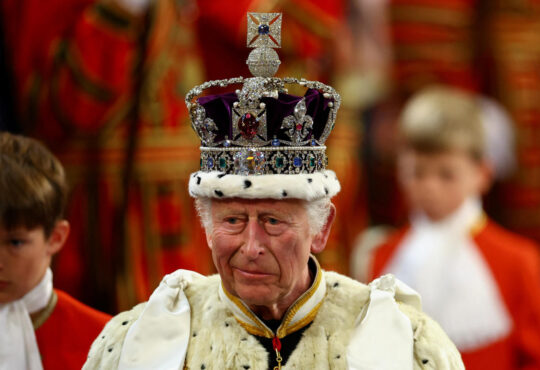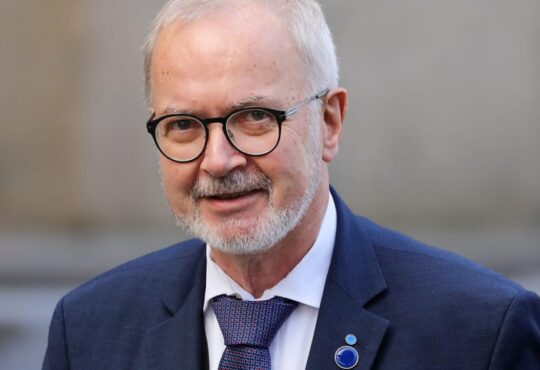
The last two years have been noteworthy by their volatility in global affairs. The emergence from the Covid-19 era, the war in Ukraine and the subsequent explosion in energy costs have had significant financial implications. Inflation and interest rates have risen sharply, bringing much volatility to investment markets and challenges for economies across the world.
The last two years have also seen enormous changes in the world of pensions in Ireland for business owners.
We’ll briefly review how we got to this point, but if you are a business owner of a profitable business, it is well worth sticking with us here as there is an opportunity you need to be aware of.
In July 2022 there was a major upheaval in the pensions world, when due to regulatory developments, all the main product providers / life assurance companies ceased to offer one-man schemes, commonly known as Executive Pension Plans.
While schemes set up prior to April 2021 were unaffected, any schemes set up since then or in the future would have to comply with significant new regulatory requirements that were introduced under an EU Directive known as IORP II. It was simply (and justifiably) not viable for providers to offer a product to meet these new requirements, and as a result they effectively closed for business in this key area for business owners.
Extracting wealth from their business in a tax-efficient way is a significant challenge for business owners. While salary play an important role in this as an immediate access to wealth to fund the owner’s lifestyle, it is expensive with approximately 50% of the amount extracted being paid in tax and other deductions. Business owners look for other solutions to extract wealth, recognising that they may have to defer the receipt of that wealth until they retire or exit the business.
While business exit reliefs such as Retirement Relief and Entrepreneur Relief also play an important role in extracting wealth on the sale of a business, pension planning is seen as probably the headline method of extracting wealth from a business. Tax relief is gained on pension contributions, pension funds grow free of tax (a significant benefit) and a portion of the fund can be taken tax-free at retirement.
With Executive Pension Plans, companies could make generous pension contributions into funds for the ultimate benefit of the business owner. The contribution levels were limited by salary / age / service, but usually significant contributions could be made.
As mentioned above, in July 2022 the market was thrown into a state of flux, with business owners wishing to establish new pension schemes being unable to make tax-efficient large company contributions.
However, this was followed by the Finance Act 2022 that came into law at the end of last year, which opened up a significant and very attractive opportunity for business owners, particularly of profitable businesses.
The change relates to Personal Retirement Savings Accounts (PRSAs), which up until the beginning of 2023 treated employer contributions as a Benefit-in-Kind for an employee from an income tax perspective.
This is now no longer the case, with employer contributions to a PRSA not treated as a Benefit-in-Kind in the hands of the employee. This gives the employee full personal benefit of their tax relief limits, without having to allow for any employer contributions made.
Furthermore, and unlike the previous Executive Pension Plans, the big opportunity in the new regulations is they do not define the level of employer contribution allowable with reference to age, service, salary or other pension benefits.
The only factor that limits employer contributions to a PRSA is the lifetime Standard Fund Threshold (SFT) of €2million. This makes PRSAs extremely attractive now for business owners when compared to occupational pension schemes or master trusts, where employer contributions continue to be limited by salary, service and age factors.
Also, tax relief on all employer PRSA contributions can be claimed in the accounting period in which they are paid. This is unlike a special contribution to an occupational pension, where the tax relief must be spread forward over 5 years.
The new opportunity is for profitable businesses being able to make generous pension contributions to a PRSA for the business owner, with the only restriction from a tax effectiveness perspective being to avoid funding past the SFT.
Also, if your spouse and/or your children are actively and demonstrably working in the business, the company can also fund pensions for them up to the SFT. That is a significant wealth extraction opportunity for a family business.
In addition, it’s worth noting that PRSAs differ to company pension plans when taking your benefits. First, you can get access to your benefits from age 50. Also, with a PRSA you can phase in your retirement by dividing your pension funds across multiple PRSAs. This can significantly reduce the level of tax paid on your pension in retirement. This option is unavailable when retiring from an occupational pension scheme.
So the previously unattractive PRSA has now become a fantastic wealth extraction vehicle for business owners of profitable companies.
As with all matters pension-related, specialist advice and careful planning are needed. Our nationwide team of financial advisers would be delighted to help you explore the opportunity for your business and help you to devise the optimal business extraction strategy.






